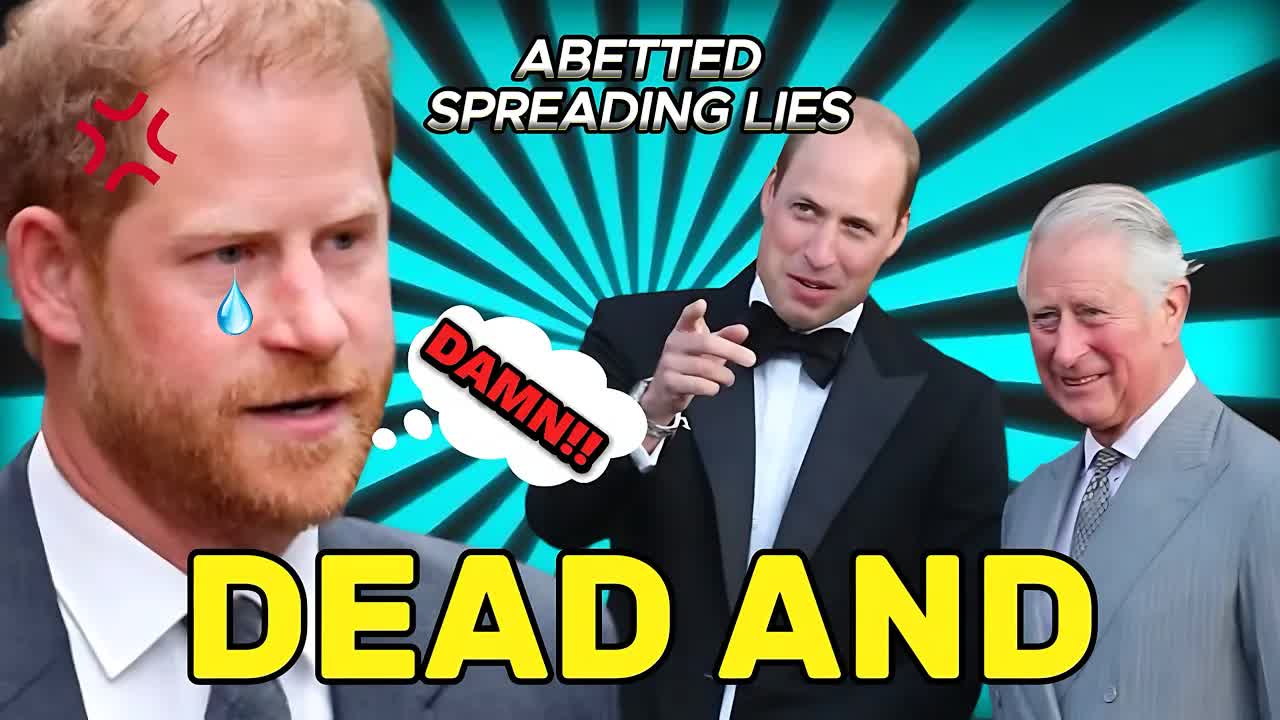Must Read
The Turbulent Journey of Prince Harry: A Royal Drama Unfolds
Prince Harry, once revered as a paragon of royal dignity, now finds himself ensnared in a web of controversies and public scrutiny.
His recent actions and statements have raised eyebrows, prompting many to question whether he fully comprehends the ramifications of his choices or if he is simply adrift in his convictions.
As we delve into his tumultuous journey, it becomes evident that there are layers to Harry's persona, revealing a narrative rife with irony and complexity.
In a candid revelation, Harry expressed his distress over false narratives that have plagued him, particularly a sensational seven-page article from 2002 that accused him of substance abuse and rehab visits.
He vehemently denied these allegations, asserting they were distorted by a journalist who misrepresented his charitable endeavors.
Interestingly, Harry insinuated that his father, King Charles, and stepmother, Camilla, may have been complicit in disseminating these damaging rumors to ease their own lives.
This assertion has further complicated his already strained relationship with his brother, William, who reportedly has been more incensed by the deceit than Harry anticipated.
The ongoing discord between Harry and William has become a focal point, with reports indicating that the brothers have not communicated in months.
Critics often wonder: will Harry ever cease lamenting his circumstances?
By resurrecting old drug accusations and attempting to shift blame onto his family, it appears Harry is trapped in a cycle of grievance.
His past admissions of drug use, documented in his own memoir, cast doubt on his protestations of innocence regarding the earlier allegations.
Recently, however, Harry made a surprising remark about Prince William, signaling a potential thaw in their fraternal rift.
Yet, one can't help but ask: what is Harry's endgame in reviving these long-buried controversies?
Is he perpetually seeking validation, akin to a petulant child refusing to mature?
With each public outburst, he seems to further alienate himself from his family, raising questions about his self-awareness.
A striking aspect of Harry's narrative is his tendency to evade accountability.
He has spoken candidly about his past misdeeds, yet he often deflects blame onto others, particularly the royal family.
This pattern of behavior suggests a reluctance to confront his own shortcomings, which could ultimately lead to repeating the same mistakes.
The irony is palpable—those who refuse to acknowledge their past are often doomed to relive it.
Harry's recollections of his youthful indiscretions, such as smoking marijuana behind a pub, reveal a man grappling with his identity.
His father's attempts to guide him through counseling sessions reflect a parental instinct to nurture, yet Harry's responses often seem dismissive.
It raises the question: does he truly recognize the implications of his actions, or is he merely caught up in a narrative of victimhood?
The media landscape has not shied away from Harry's past, and he has been under the spotlight for his behavior since his early days.
While Harry has admitted to his drug use, he seems to harbor resentment towards those who dare to expose his flaws.
His recent comments suggest a disconnect from reality, as he portrays himself as a misunderstood figure battling against an unjust world.
As Harry continues to navigate this turbulent phase of his life, he appears to be stuck in a time warp, oblivious to the changes that have transpired since he left for the United States.
The global landscape has shifted dramatically, with events like COVID-19 and economic crises reshaping priorities.
In contrast, Harry seems ensnared in a narrative that no longer resonates with the public, rendering him increasingly irrelevant.
His attempts to frame his family as adversaries while casting himself as the innocent victim have grown tiresome.
The public's patience is wearing thin as they witness the ongoing saga unfold.
Observers note that his behavior resembles that of someone unwilling to accept the consequences of their actions, opting instead to blame others for his predicaments.
The truth remains elusive, as Harry's accusations against his family raise eyebrows.
Why would King Charles or Camilla want to tarnish their son's reputation?
Such claims appear unfounded, suggesting a deeper issue at play.
Harry's struggles with familial relationships seem largely self-inflicted, leading to speculation about his maturity and the authenticity of his grievances.
Despite his claims of happiness, Harry's actions suggest otherwise.
The couple's attempts to curate a positive public image have faltered, revealing cracks in their facade.
Their reliance on public relations strategies to reshape perceptions hints at an underlying dissatisfaction with their current reality.
As we observe this unfolding drama, one thing becomes clear: Harry's narrative is a complex interplay of personal choices, family dynamics, and public perception.
Whether he can navigate this turbulent path and emerge with a renewed sense of purpose remains to be seen.
For now, the world watches, captivated by the saga of Prince Harry—a story that continues to evolve in unexpected ways.








































